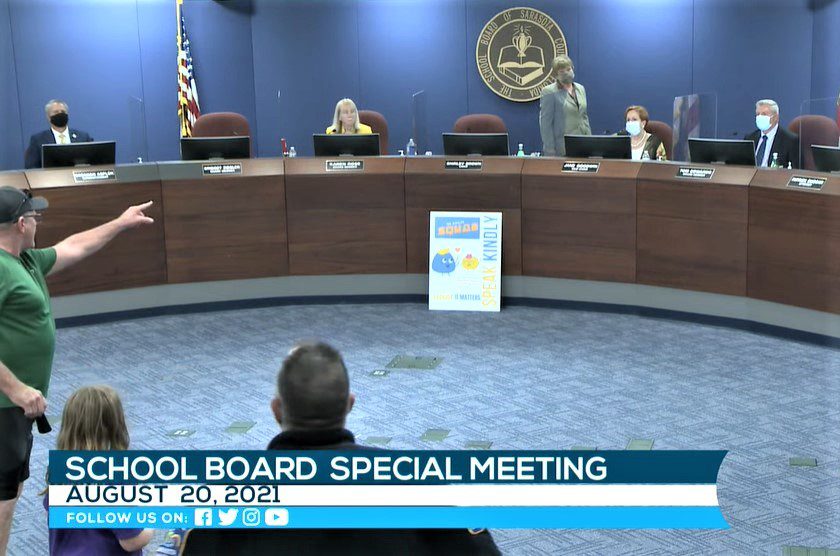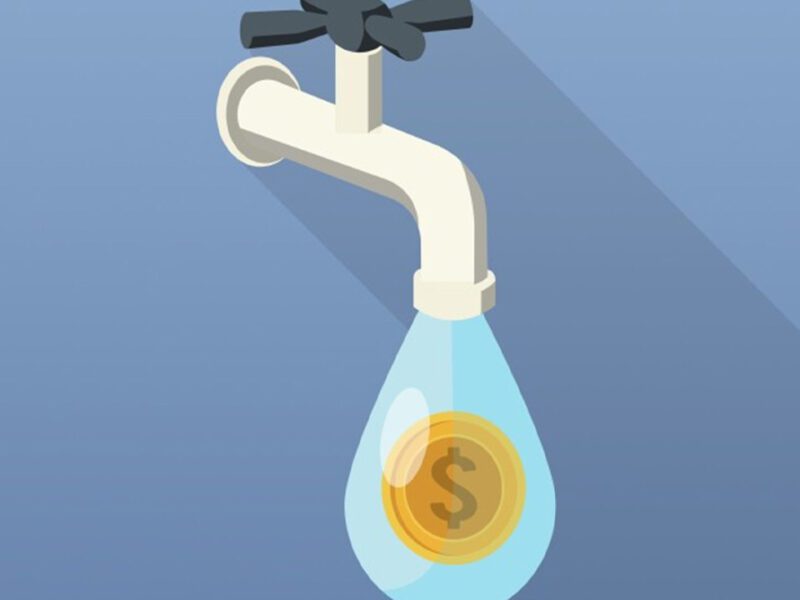
Voters approved nonpartisan school boards some 20 years ago, but GOP lawmakers want that to change
Florida Phoenix | By Danielle J. Brown | December 7, 2021
Florida’s nonpartisan school boards and the politics that surround the state’s education system have accelerated the political discourse since the advent of the COVID-19 pandemic.
Now, some GOP lawmakers are pushing to overhaul those boards by requiring elections to be partisan, meaning school board members would be connected to their political parties.
Florida’s local school boards, which oversee public school districts in 67 counties, are currently nonpartisan. That goes back more than 20 years, following a ballot initiative in November 1998. At that time, voters approved allowing school board members to be nonpartisan, according to the Florida Division of Elections.
But nowadays, State Sen. Joe Gruters, a Republican who represents Sarasota County and part of Charlotte County, has filed legislation (SJR 244), ostensibly to give voters an opportunity to understand school board candidates’ core beliefs. Gruters is chairman of the Senate Education committee in the Legislature and is chair of the Republican Party of Florida.
“It doesn’t matter what county you were in, these races are already partisan,” Gruters said at a Senate Ethics and Elections committee last week. “There’s been no time like the last 24 months where we’ve seen how important it is to elect school board members that reflect our values.”
The legislation, Gruters said, would “stop the shell games.”
Gruters also said: “At the end of the day, the reason why we join political parties is to affiliate with likeminded people. And we know their core beliefs and values. May not be 100 percent of the time…but deep down our core beliefs and fundamental values should be pretty close to what you believe.”
State Rep. Spencer Roach, representing part of Lee County, is the sponsor in the State House, along with State Rep. Tyler Sirois, who represents part of Brevard County.
The legislation highlights an increased, and in some cases, frightening focus on school boards and their roles as elected officials. Since the pandemic, some school board members have experienced threatening situations such as verbal abuse, vandalism, and other forms of intimidation as tensions rose over mask mandates and control over Florida’s public schools.
In other instances, the DeSantis administration penalized certain local board members by taking away their pay, even though the boards wanted to keep children safe during the pandemic by using strict mask mandates.
Should the Legislature approve the bill during the 2022 legislative session, the measure would be left to Florida voters to decide on the issue.
The legislation would require an amendment to the Florida Constitution to change the nonpartisan election of school boards to “partisan,” starting with the general election in 2024. However, the political parties can hold primaries to determine their candidate before the 2024 general election.
State Sen. Annette Taddeo, a Democrat who represents part of Miami-Dade County, asked about No Party Affiliation (NPA) voters. She is currently a candidate for the 2022 gubernatorial election.
These voters are not registered for either parties, and because Florida has closed primaries, NPA voters cannot participate in the primary election in either party. “So, all those NPA’s will not really have a voice in the primary to select the nominee (for school board members),” Taddeo said last week.
Gruters’ suggestion was that voters can change their registration to vote for the candidate they prefer in the primary.
Elsewhere, some states have already started the switch from partisan to nonpartisan school boards.
Just last month, the Tennessee governor approved legislation to authorize partisan elections for local school boards, according to Ballotpedia.
This month, a lawmaker in Arizona “prefiled” a bill to require school board elections to be partisan, according to the Arizona State Legislature.
In North Carolina, some school boards are partisan and others are not, according to the North Carolina Schools Boards Association.
But not everyone supports such a dramatic change.
The South Florida Sun Sentinel Editorial Board last week described the idea as “dangerous.”
The board wrote: “Florida lawmakers want to go backward and return to partisan school board elections in all 67 counties — a dangerous mistake. It makes no sense to undo a decision Floridians made more than two decades ago when they voted to make school board races nonpartisan, the same as for contests for mayor or for circuit judge. The switch to nonpartisan school elections, the system used in most states, was approved by 64% of voters, and in Broward, it passed by an even larger margin of 71%.
“One sign of trouble ahead is that Florida’s confrontational governor, Ron DeSantis, has pledged to use his ‘political apparatus’ to target board members for defeat in 2022 who have disagreed with his policies or supported critical race theory — a phony issue, since CRT is not taught in Florida. ‘It’s all about creating chaos in our public schools,’ Andrew Spar, president of the Florida Education Association, a teacher union, told the Sun Sentinel Editorial Board.”
There have been other efforts to adjust how school boards work.
In the 2021 session, Rep. Sam Garrison, a Republican who represents Clay County, sponsored a bill that would have worked to remove the salaries of school board members in order to reduce the “political squabbling” out of a “nonpartisan” and “limited-oversight” position. The bill removed the language on salary cuts.





